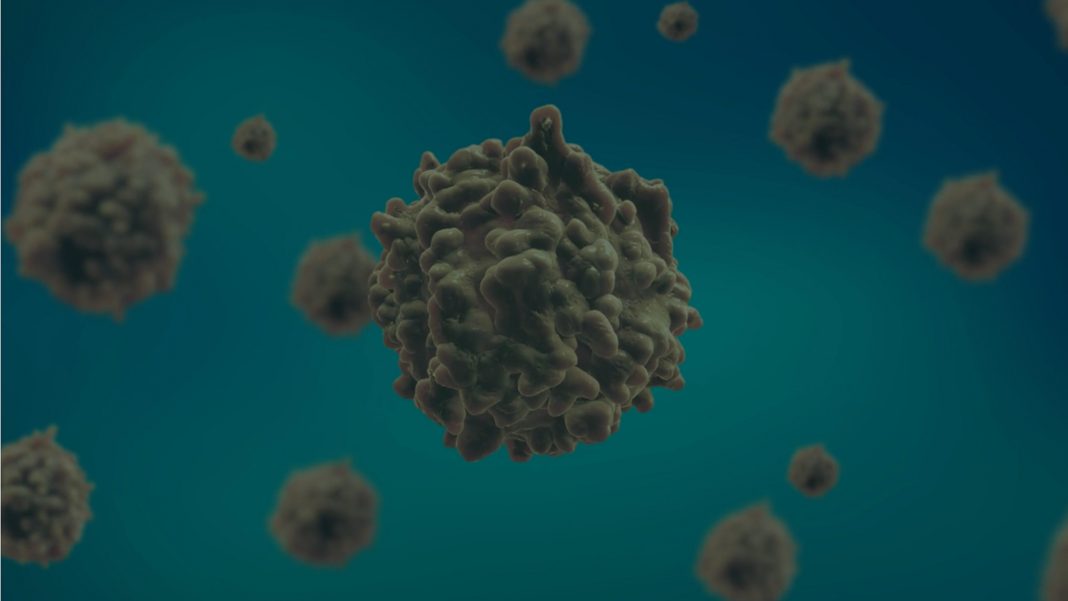Allogene Therapeutics saw its shares fall more than 40% in early trading Friday after acknowledging that the FDA had placed a clinical hold on its trials evaluating its allogeneic CAR T (AlloCAR T™) therapies for cancer.
Allogene said the clinical hold was placed after it notified the FDA of a chromosomal abnormality detected in a bone marrow biopsy undertaken to assess pancytopenia in a patient who was treated with the company’s ALLO-501A CAR T cells in the Phase I/II ALPHA2 trial (NCT04416984).
The patient, whose gender and age were not disclosed in Allogene’s announcement, was said to be with Stage IV transformed follicular lymphoma and a c-myc genetic rearrangement, whose cancer was refractory to two prior lines of immune-chemotherapy and additional radiation therapy. The patient could not receive an autologous CD19 CAR T cell therapy due to manufacturing failure associated with inadequate expansion of autologous CAR T cells.
Following infusion of ALLO-501A, Allogene disclosed, the patient experienced Grade 1 CRS and Grade 2 ICANS, requiring a course of high dose steroid therapy. The patient subsequently developed progressive pancytopenia and a bone marrow biopsy showed aplastic anemia and the presence of ALLO-501A CAR T cells with the chromosomal abnormality.
Early translational data showed that the CAR T cells expanded, peaking on Day 28, and undergoing contraction thereafter. The patient underwent allogeneic stem cell transplantation after showing a partial response to ALLO-501A. According to Allogene, prolonged instances of cytopenia requiring rescue stem cell transplantation have previously been reported in autologous CAR T therapies.
An investigation has begun, the company added, to further characterize the observed abnormality, including any clinical relevance, evidence of clonal expansion, or potential relationship to gene editing.
“Patient safety is our highest priority, and we are committed to working closely with the FDA to evaluate any potential clinical implications of this finding, and determine next steps for advancing ALLO-501A and our clinical programs,” Rafael Amado, MD, Executive Vice President of Research and Development and Chief Medical Officer, said in a statement. “As a leading developer of allogeneic cell therapies, we recognize our added responsibility to fully assess all aspects of our therapies to advance the field.
Despite the clinical hold, the FDA is continuing to review end of Phase I data, in anticipation of a pivotal Phase II trial of an ALLO-501A, Allogene added.
Investors responded to news of the clinical hold, disclosed Thursday after the close of trading, with a stock selloff that sent Allogene shares plunging 43%, to $13.99 as of 11:39 a.m. ET, from Thursday’s closing price of $24.38. Over the past 52 weeks, shares of Alogene have traded between $13.70 and $44.92.
Caution from analysts
However, two analysts who follow the company’s stock expressed more caution about the clinical hold than investors appeared to have based on the stock activity.
John Newman, PhD, an analyst with Canaccord Genuity, wrote Friday that ALLO-501A CAR-T cells do not persist long-term, due to the body recognizing them as immunogenic, and eliminating them.
“Therefore, the likelihood of long-term high-level propagation of the chromosomal abnormality via these CART cells is extremely low in our opinion,” Newman wrote. He also cited Allogene’s disclosure that only a small portion of the ALLO-501A CART cells contained the chromosomal abnormality, not the entire population.
Canaccord Genuity is maintaining its “Buy” rating and $55 price target on Allogene shares pending further details.
Jefferies rates Allogene shares as “Buy,” with a price target of $30 a share.
“New ALLO safety update (one case of chromosomal abnormality) is very unexpected and, from a trading perspective, could lead to an overhang until investors get more clarity on next steps,” Jefferies analyst Michael Yee and three colleagues cautioned Friday in a research note headlined: “Clinical hold surprising but likely temporary, would buy this dip.”
Yee and colleagues observed that the clinical hold raised three key questions:
- Is the issue due to manufacturing and gene edits which cause a transformation?
- What is the actual big picture ramification if the cells go away in time, the immune system will recover and clear CAR cells?
- Could the underlying gene editing risk impact the other programs which use the same gene editing (also on clinical hold)?
“Our view is this issue is manageable since it doesn’t seem like the abnormal CAR-T cells were oncogenic. This is ultimately a risk benefit equation as these patients are heavily pre-treated and are sick w/ mostly no options,” Yee wrote. “Furthermore, the clinical manifestations (pancytopenia) aren’t uncommon with autologous CAR-T already and could be addressed with rescue allogeneic stem cell transplantation, which was the case for this patient.”
“Nevertheless, we expect ALLO to take necessary steps to get aligned with the FDA either in the form of more stringent manufacturing and release assays or protocol amendments to monitor patients more frequently,” Yee added.


